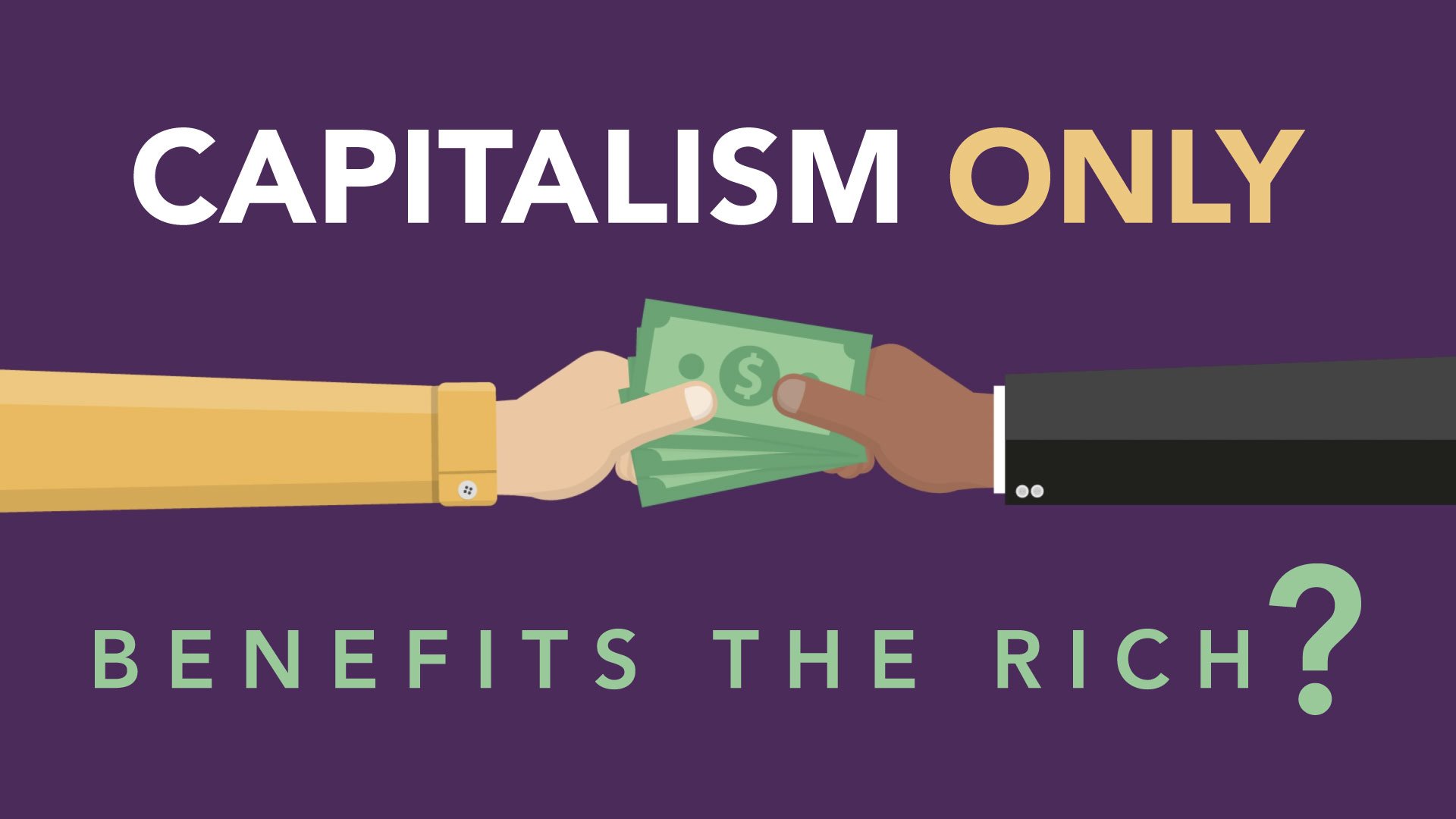You’re in a conversation and someone says, “In America, the richest 1% have 40% of all the wealth. This kind of inequality shouldn’t be tolerated.”
What would you say?
The wealth gap between the upper class and everyone else is almost always framed in terms of inequality and fairness. But that doesn’t present the whole picture.
The next time you’re in a conversation and someone suggests that economic inequality is inherently unjust or unfair, here are 3 things to remember:
1. Because there’s not a fixed amount of wealth in an economy, the wealth of some doesn’t necessarily cause the poverty of others.
2. Economic inequality is often the mark of a truly free society, one that respects that the diversity of our choices and gifts often have unequal outcomes.
3. Focusing on inequality and wealth gaps distracts from the real problem of poverty.
You’re in a conversation and someone says, “In America, the richest 1% have 40% of all the wealth. This kind of inequality shouldn’t be tolerated.” What would you say? The wealth gap between the upper class and everyone else is almost always framed in terms of inequality and fairness. But that doesn’t present the whole picture. The next time you’re in a conversation and someone suggests that economic inequality is inherently unjust or unfair, here are 3 things to remember: Number 1: Because there’s not a fixed amount of wealth in an economy, the wealth of some doesn’t necessarily cause the poverty of others. Many people worry about wealth inequality because they assume that the total amount of wealth in our economy is like this cherry pie. There’s only so much to go around. If someone gets a bigger slice, that means someone else will only get a smaller slice. If there’s only so much wealth to go around, that means the richer Peter is, the poorer Paul will be. No one should have “more than his or her fair share.” But that’s not how market economies work. In market economies, human labor, ingenuity, legal protections, institutions, ideas, information, and technology all combine to create wealth that wasn’t there before. In other words, in a market system, the size of the wealth pie grows – it’s not fixed. Human beings, when given the opportunity and freedom within a functioning market, create wealth. Often, humans do this is by transforming things that have little economic value into resources and technologies that have great economic value. Light, for instance, has been turned into lasers. And sand is transformed into fiber optic cables and computer chips. Humans innovate. The late Steve Jobs, the founder of Apple, didn’t steal iPhones from homeless people. He innovated them, and by doing so and selling them, Steve Jobs created new wealth. The pie grew. Steve Jobs getting richer didn’t make everyone else poorer. In fact, the wealth he added to the pie, provided jobs and economic value to millions of people in the US and around the world. Because wealth can be created, it doesn’t follow that when the rich get richer the poor get poorer. In fact, in a healthy market economy over the long term, the opposite is usually true. Number 2: Economic inequality is often the mark of a truly free society, one that respects that the diversity of our choices and gifts often have unequal outcomes. Because everyone is created in God’s image, everyone should be treated equally before the law. But that doesn’t mean we are identical or that our efforts produce identical outcomes. Humans are diverse in both our talents and our choices. In a free society, we make choices about our own lives. We decide to pursue careers that best suit our talents, personality, and goals. Some choose jobs they love that barely pay the bills. Others choose to pursue careers that are risky or boring but lucrative. Others prefer regular work hours that pay less but are stable. A free society allows us to make these different choices. Having that sort of freedom can give you a sense of purpose and satisfaction, and make life more enjoyable. If you do find what you’re good at and work really hard to create value for others, you might even achieve new records, create beautiful things, or make a lot of money. The only way to level economic outcomes would be to deprive people of this freedom. And whenever that’s been tried, it hasn’t worked. Rather than make everyone equally prosperous, governments who try to force economic equality only succeed in making everyone more equal in their poverty and misery. Number 3: Focusing on inequality and wealth gaps distracts from the real problem of poverty. Rather than wealth, let’s think about health. Some people are healthier than others. But it’s not the health of some that is the problem. The problem is that some people are sick. In the same way, the problem isn’t as much that some people are wealthier than others, as it is that some people are still poor. That’s why our efforts to alleviate poverty should be focused on ensuring widespread opportunity and legal protections, not equal outcomes. The rules should be set up so that everyone has a fair chance to pursue a career of their choice, and develop their talents in ways that create value for others. But no one has the power to guarantee the same outcomes for every person. That’s not even a worthy goal. What we should seek is a culture in which those who work hard and work smart are rewarded for their efforts. A just society should provide everyone a fair chance to improve their lives. It shouldn’t try to dictate a final result. So the next time you’re in a conversation and someone says that we should try to level economic outcomes, here are three things to remember: Number 1: Because there’s not a fixed amount of wealth in an economy, the wealth of some doesn’t necessarily cause the poverty of others. Number 2: Economic inequality is often the mark of a truly free society, one that respects that the diversity of our choices and gifts often have unequal outcomes. Number 3: Focusing on inequality and wealth gaps distracts from the real problem of poverty. For What Would You Say, I’m Brooke McIntire.
For more on capitalism and economics, see: Richards, Jay W. Money, Greed, and God: Why Capitalism is the Solution and Not the Problem. New York, NY: HarperCollins, 2009.
Thank you to Dr. Jay Richards for serving as the consultant for this video.



